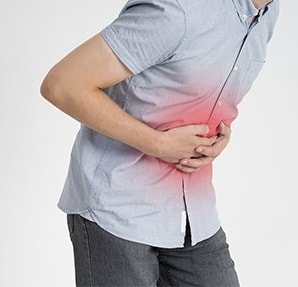Here at We Spill The Beans, we love coffee. But like a lot of things there can too much of a good thing, and coffee or specifically caffeine is no exception.
There is absolutely nothing wrong with having your daily cup of Joe (in fact some people argue the health benefits), but there absolutely is something wrong with having too much caffeine.
Caffeine is a stimulant, in fact its the worlds most consumed stimulant. When you drink it it has an effect on the central nervous system, and it effects your neural activity. It is this effect on the brain we crave, this is what heightens your alert levels and lowers your fatigue.
If you regularly consume more than the recommended 400mg a day, there is a risk your body will become dependent on the daily caffeine intake. When this happens you are dependant, and if you go more than 12hrs without your hit, you may suffer caffeine withdrawal symptoms.
Caffeine withdrawal syndrome has many different symptoms, and below are 10 of the most common ones.
If you are suffering from any of the below symptoms, and they last for more than a few days, please consult your doctor for professional advice.
10 Caffeine Withdrawal Symptoms
1 – Headache

Of all the reported caffeine withdrawal symptoms, the headache is the most common. We are not just referring to average headache though, no, withdrawal headaches are more severe like those associated with migraines.
Just 2 cups of coffee contain enough caffeine to reduce cerebral blood flow by more than an quarter (27%) (1). The reduced flow causes the blood vessels to constrict.
When you stop drinking coffee or reduce your caffeine intake, this allows your blood vessels to open up again and you have an increase of blood flow to the brain.
It is the sudden change in blood flow rate, that is responsible for the painful headaches associated with caffeine withdrawal.
The severity and length of the headaches will depend on how big the change in rate is and also on how quickly your brain can adjust to the new flow.
2 – Tiredness and Fatigue
Most of us enjoy our coffees in the morning, and this is not by coincidence. We are looking for that boost and feeling of alertness we get from our morning coffee.
Consuming caffeine reduces fatigue and increases your alertness by blocking receptors to a adenosine. Adenosine is the chemical compound that makes us feel drowsy (2), hence why a cup of coffee helps us feel more awake.
When you remove the caffeine it has the opposite affect though, and you can start to feel overtired and drowsy.
Regular studies have shown the more caffeine you consume the greater the feeling of fatigue associated with caffeine withdrawal symptoms.
3 – Feeling of Anxiety
The feeling of anxiety is actually a funny one, as it is reported as a side effect of both consuming caffeine and withdrawing from caffeine.
As a stimulant caffeine causes increases in heart rate, stress hormones and blood pressure. So for those caffeine consumers who have a sensitivity, they will find that even a relatively small amount of caffeine can cause them to feel anxious and or jumpy.
However it is also a widely reported symptom of caffeine withdrawal, but this is more a psychological issue rather than a physical one.
When you become dependant on caffeine and then suddenly remove it, it will affect your mental state and cause feelings of anxiety.
Another possible reason for anxiety when withdrawing from caffeine is most people consume their caffeine in the form of a sugary drink (High street coffee shop drinks can contain 25 spoons + of sugar (3)). Removing this amount of sugar from your diet can increase feelings of anxiety.
4 – Nausea
Many people who withdraw from caffeine report feelings of nausea and stomach upset. With some even reporting actually being sick (vomiting) although this is less common.
Coffee is sometimes used as a digestive, so when it is removed it may cause feelings of bloating and possible stomach upset.
5 – Unable to Concentrate
Many people consume caffeine right before an exam, important meeting or sporting event, this is because caffeine increases our ability to concentrate.
Caffeine boosts the levels of adrenaline and the bodies reaction to stress, as well as increasing the levels of dopamine and norepinephrine. This combination of chemical reactions causes the brain stimulation associated with increased levels of alertness, focus and concentration.
Removing caffeine has the opposite effect and people may experience a lack of concentration or brain fog until they become accustomed to coping without caffeine.

6 – Digestive difficulty
Many of you will have experienced the urge to go to the bathroom shortly after consuming caffeine, this is caused because caffeine acts as a stimulant on the colon.
When people first quite, their bodies miss the extra help to “their routine” given by the caffeine and they can start to feel bloated and constipated.
Try to drink extra water and also have a high fibre diet (4)
7 – Feeling Down and Depressed
There have been many studies that have shown caffeine to increase mood and lower the risk of depression.
This has been linked to its ability to block the adenosine receptors (remember the ones that make you drowsy).
One strong study of over 50,000 women showed a strong correlation between drinking 4 or more cups of coffee regularly and a 20% lower risk of depression, when compared to those who drank little or not coffee. (5)
When you remove the caffeine you also remove this feeling of elation and your mood may take a hit while your body is suffering caffeine withdrawal.
8 – Your overly irritable

You know the feeling of not wanting to talk to or sometimes even see another person until you have enjoyed your morning hit of caffeine. There are plenty of memes around this online.
This is because of all the withdrawal symptoms irritability sets in the quickest, and as the caffeine leaves your system overnight, you start to feel this symptom as soon as you wake up. The effects of caffeine intake only last for between 4-6 hours, and withdrawal starts as soon as it has left your system.
Quitting caffeine will cause the feeling of irritability to build the longer you go without your hit. Heavy consumers of caffeine will likely find this is the hardest symptom to overcome and is the biggest cause for failing to stop.
9 – Low on Energy
Todays world can be quite demanding at times, and we are constantly under stress. This combined with irregular sleeping patterns, poor diets and lack of regular exercise can lead to constant feelings of being drained.
This is probably why caffeine consumption is so widely used as a stimulant, as more and more people search to counter that feeling.
Many of us will reach for a cup of joe, an energy drink to cup of tea several times a day.
The problem arises as we consume more and more caffeine we develop a dependence. This in turn means we need more each time to get the feeling we crave.
When we stop or even reduce the caffeine intake we experience what is perceived as a lack of energy.
10 -Hormonal Changes
Caffeine consumption can cause the increased levels of secretion of cortisol in the body (6) . Having too much caffeine can interfere with the bodies natural cortisol levels and lead to stresses on your adrenal glands.
When you stop the caffeine intake, you body needs time to readjust its natural production of cortisol, and until it does your body will suffer the changes.
How to alleviate and cope with the Symptoms
Reading the above you are probably dreading giving up the caffeine, but its not as bad as I have made out. Some of you may not suffer any symptoms and some may only experience a few.
And there are things you can do, to alleviate them and reduce the risk of suffering withdrawal symptoms.
Reduce gradually
Reducing your caffeine intake gradually rather than going “cold turkey” (7) will reduce or even remove all or some of the above.
When you reduce slowly overtime your body can adjust slowly to the lower levels of caffeine. Studies have shown you are more likely to stick it out by quitting over time.
OTC’s
Over the counter pain relief can help with the withdrawal process by easing the pain from the headaches. It can also help with any muscle pain.
Sleep
Its natural to sleep more when you reduce the caffeine levels, so you may not want to start the process when you are unable to sleep a lot. Try starting on the weekend, rather than a Monday.
Stay Hydrated
Staying properly hydrated is a good thing all the time, but is especially good when suffering withdrawal symptoms.
Good Diet
A healthy diet filled with plenty of fresh fruit and vegetables will help the body produce natural energy, and alleviate the feelings of lethargy. A good diet will also contain plenty of fibre to help with any potential digestive issues.
Caffeine Withdrawal Timeline
The effects caffeine has only lasts for between 4-6 hours, after which you will be free of caffeine and the withdrawal process begins.
Most people will only suffer with withdrawal from caffeine for between two to nine days. However extremely heavy users quitting instantly may experience them for up to two months.
Staying off for the longer term will mean changing your habits and knowing which drinks, foods and medications contain caffeine.
How much caffeine is too much?
It generally accepted that upto 400mg a day is a safe level of caffeine to consume. This roughly the same as 4 cups of coffee, or 2 cans of energy drinks (remember energy drinks contain other substances which may be harmful).
Everyone is different though, and it maybe advisable to have less than 400mg. Please consult a professional if you are unsure
Who should avoid caffeine?
While caffeine in moderation is good for most people, some people are advised to avoid it, or at least limit consumption.
- You are sensitive to caffeine or other stimulants
- You are pregnant or trying to get pregnant
- You suffer digestive issues such as IBS, Reflux or Diabetes
- You take medications that caffeine may interfere with such as anti-depressants
- You have been advised by a health professional to limit or stop
Summary
We all enjoy a daily coffee and the associated benefits of a safe amount of caffeine, and within the limits there is nothing wrong with this.
However as is usually the case, there is too much of a good thing, and if you drink more than is recommended on a regular basis, you risk becoming dependant on caffeine, and may no longer get the benefits.
What’s more if you then suddenly find yourself without caffeine for even a small amount of time 12hrs, you could suffer some quite bad withdrawal symptoms.
If you are worried you may be having too much, why not try switching one of coffees for a decaf option, there really are some great ones out there.
FAQs
Is caffeine addictive?
Drinking caffeine regularly will cause most people to develop a tolerance to it, and overtime you will find you need to keep consuming more in order to feel its effects.
This is not the same as an addiction though, an addictive substance such as MDMA or Nicotine will cause large changes in dopamine levels and change the reward circuits in the brain.
You can become addicted to nicotine, but you become dependant on caffeine
How long do caffeine withdrawals last?
The symptoms of caffeine withdrawal start from 12 hours after your last intake of caffeine and will last anything from 2 to 10 days depending on the strength of your addiction for most people
Some heavy consumers of caffeine could suffer withdrawal symptoms for between 2 weeks – 2months.
Can you flush your body of caffeine?
Once you have consumed caffeine it effects on the body will last for only a few hours, after which it will naturally leave the system.
You cannot do anything to flush caffeine out of your body, or speed up the process. You just need to wait it out and let it leave your system naturally
Can you quite caffeine cold turkey?
Yes you can quite caffeine cold turkey, and nothing bad will happen. However it may cause an extra shock to the system and make the withdrawal symptoms worse. Also it is much harder mentally to give up cold turkey.
Quitting gradually will ease any symptoms and you will also be more likely to stick it out.
Will giving up coffee improve my skin?
There are two arguments here. Firstly as giving up caffeine can improve circulation an blood flow, some people notice a better skin glow after giving up. Others also report puffing an black circles around the eyes diminishes when they quit.
The second argument is the antioxidants in the coffee are actually good for your skin. I suppose the correct argument is it depends?
Does caffeine make you fat?
Caffeine or even coffee on its own will not make you fat or cause any weight gain. Some people will actually argue it helps you lose weight by speeding up the metabolism.
However if your favourite caffeinated tipple is a “tall” full fat latte with syrup flavourings and a helping of sugar, then this will be packed with calories and YES that will cause weight gain.





